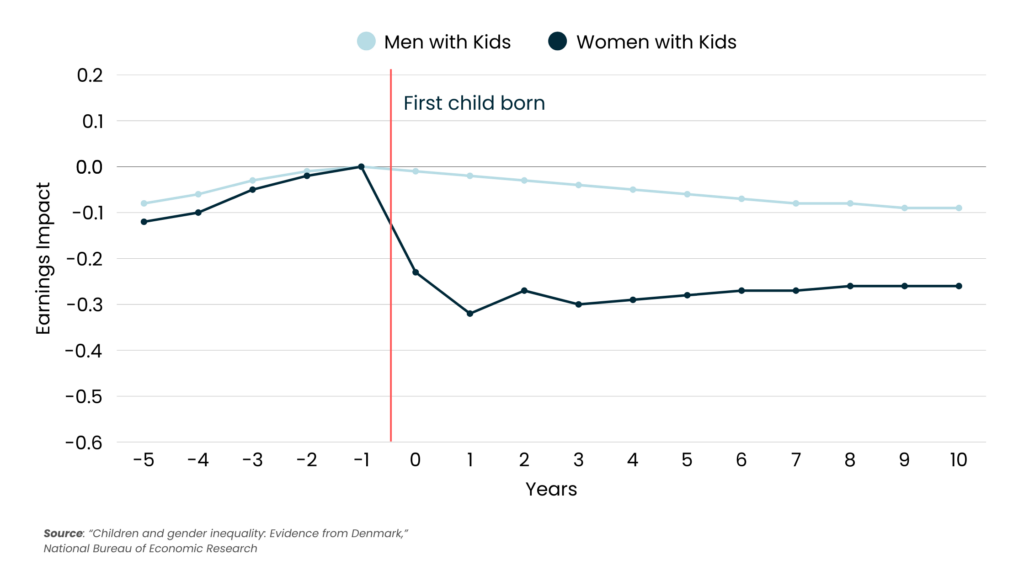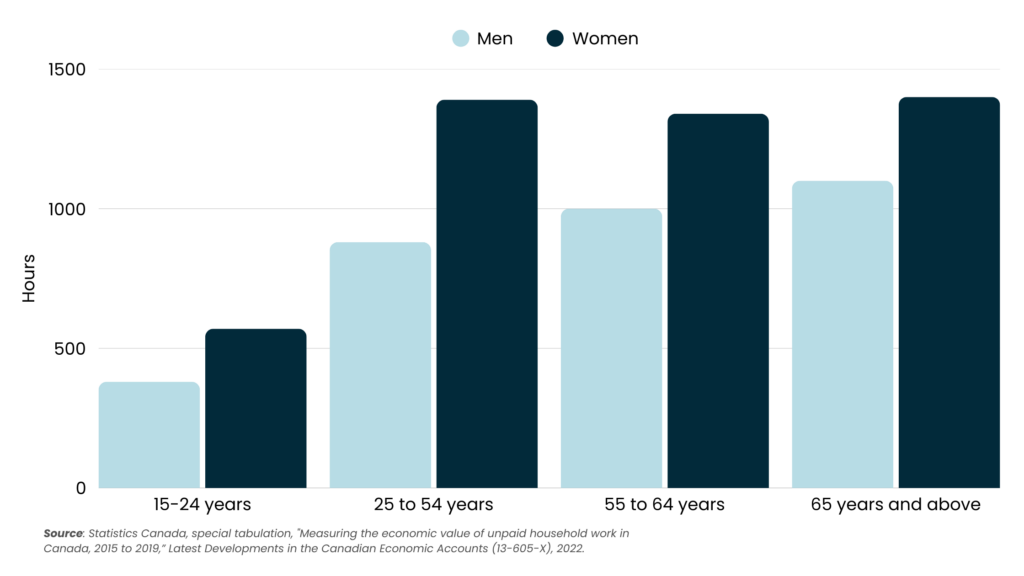Motherhood is often described as priceless, but in economic terms, that’s far from the truth. We often celebrate our moms with flowers, gifts, or brunch but the value and financial impact of caregiving is very rarely recognized. Let’s explore the cost of motherhood and the real value of unpaid care.
Motherhood’s Earnings Impact
Women’s earnings drop a significant amount after having a child, and that drop isn’t temporary, the long-run child penalty for women is 19.4% [1].

Research has shown that women experience an immediate and lasting decline in income after having their first-born child. This isn’t due to a lack of ambition or skill but from structural factors that often penalizes caregiving responsibilities. The “motherhood penalty” is cumulative and affects promotions, savings, and pensions.
The Hidden Economy of Unpaid Work
Motherhood has a massive contribution to the economy, it’s just often unpaid and invisible. The value of unpaid childcare in Canada was about $284 billion in 2015, which was about 15% of the GDP in Canada [2]. Women perform significantly more unpaid work than men across all age groups, with a larger gap between ages 25 to 54 years which could be due to people in this age group more likely having younger children that require more care.
Average annual hours of unpaid household work per person by sex and age group, 2015 [3]

These household work can include:
- Caregiving
- Cleaning
- Cooking
- Scheduling
- Managing appointments
- Emotional labor
And a lot more. If this labor were outsourced, it would have to be paid for but that’s not the case. This is work that sometimes is referred to as a “second shift” especially for working mothers. This costs something, and it’s time to stop pretending that it doesn’t.
Why it Matters
Unpaid work and career setbacks have effects that are long-lasting. From earnings that are reduced immediately following childbirth to lower savings and opportunities. Despite being one of the most essential roles in our society, it is still undervalued in our economic systems. Motherhood should be recognized and celebrated and not penalized by policies and frameworks.
We’re not saying that motherhood should be salaried, but it should definitely be accounted for.
Final Thoughts
We measure productivity, profits, and GDP yet somehow we still fail to account for the value of care. Motherhood keeps households and communities running but the work is still often undervalued.
If you’re still wondering just how demanding this role is, take a look at this short video of a demanding job interview:



